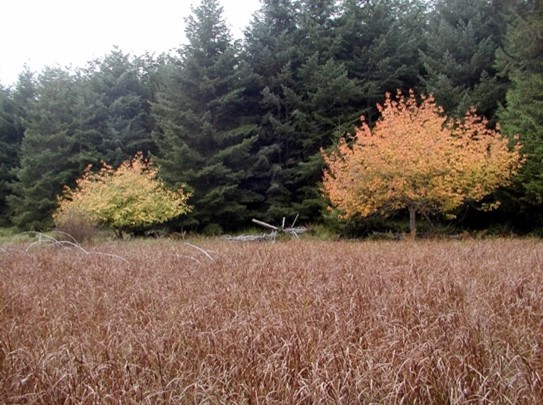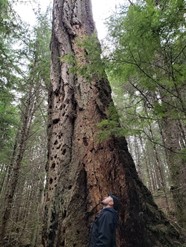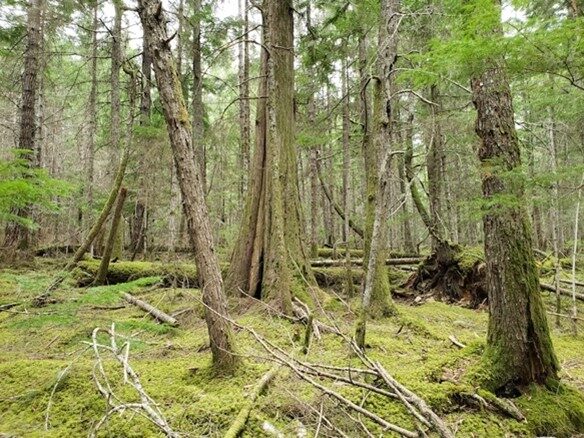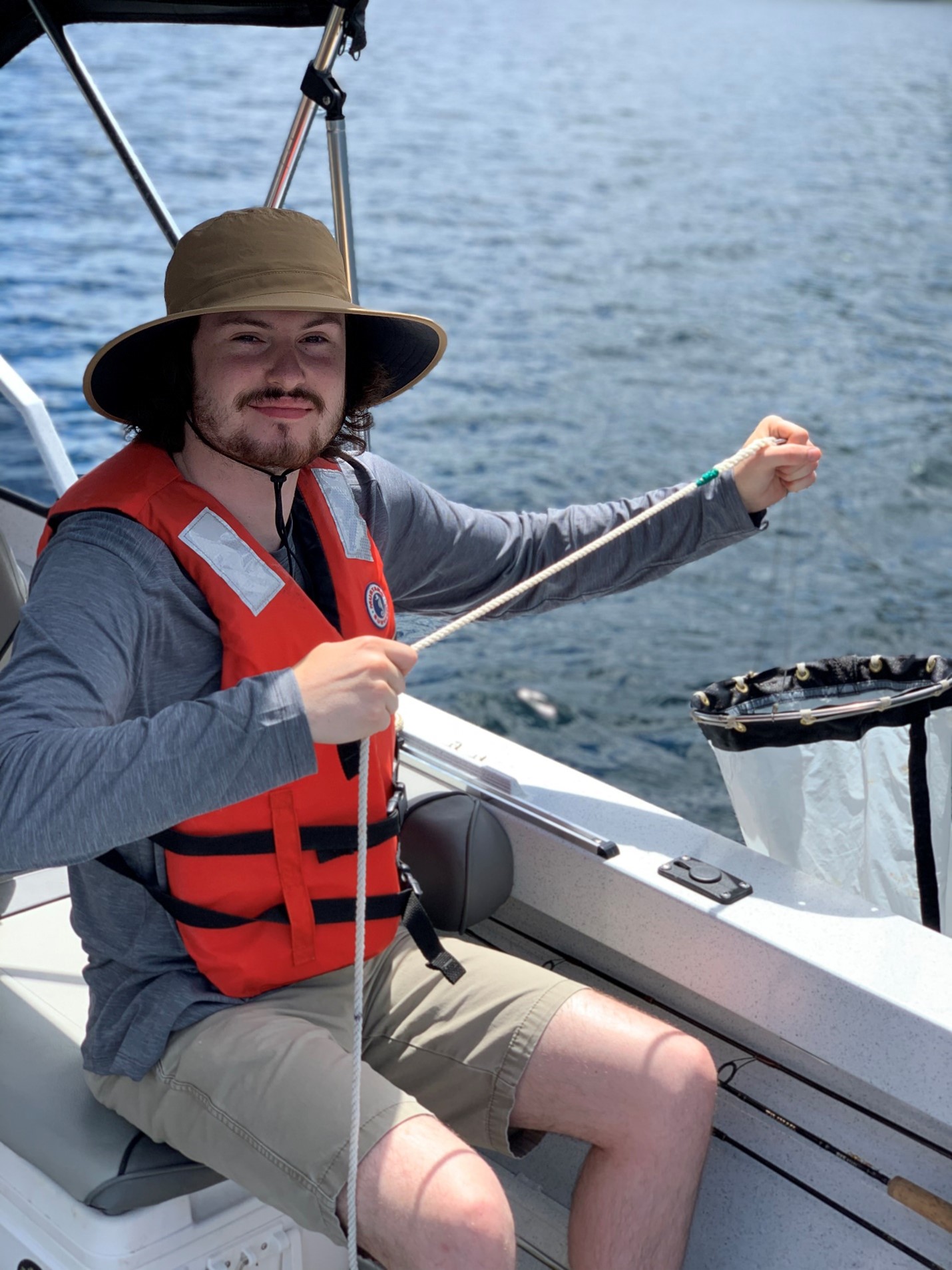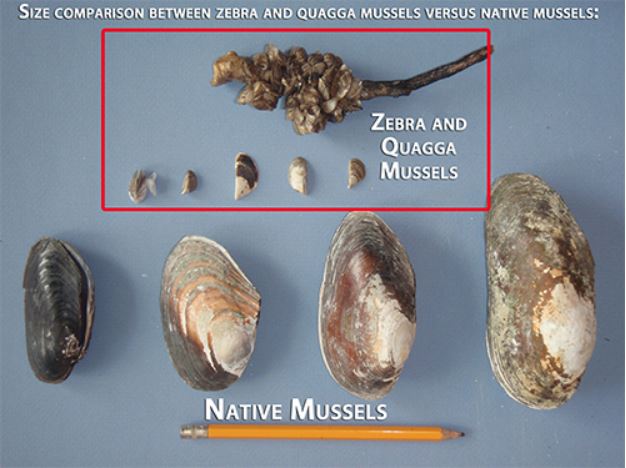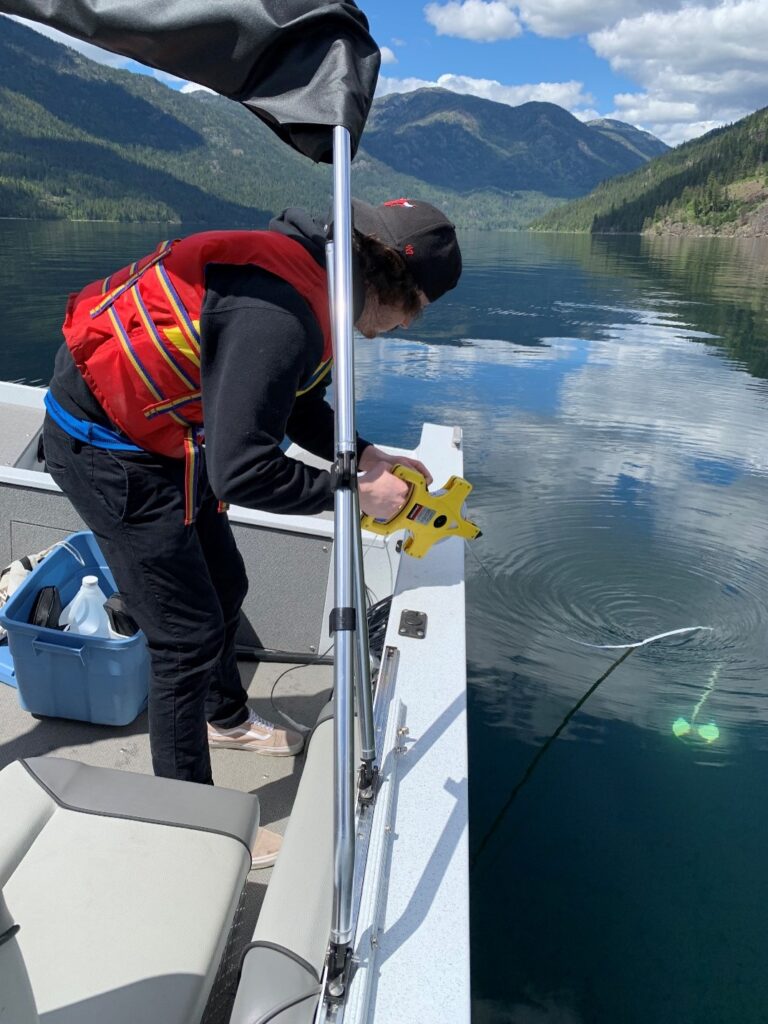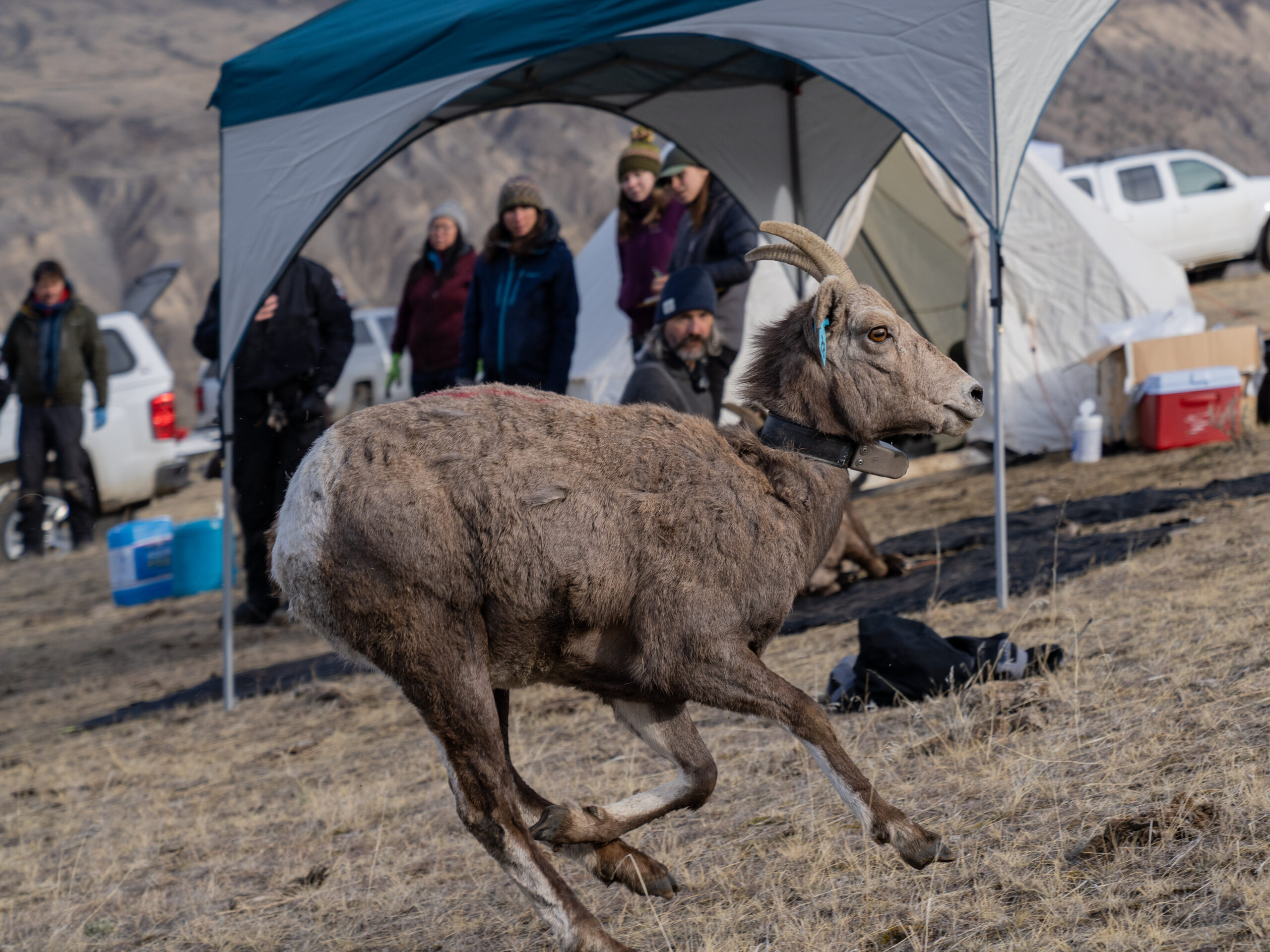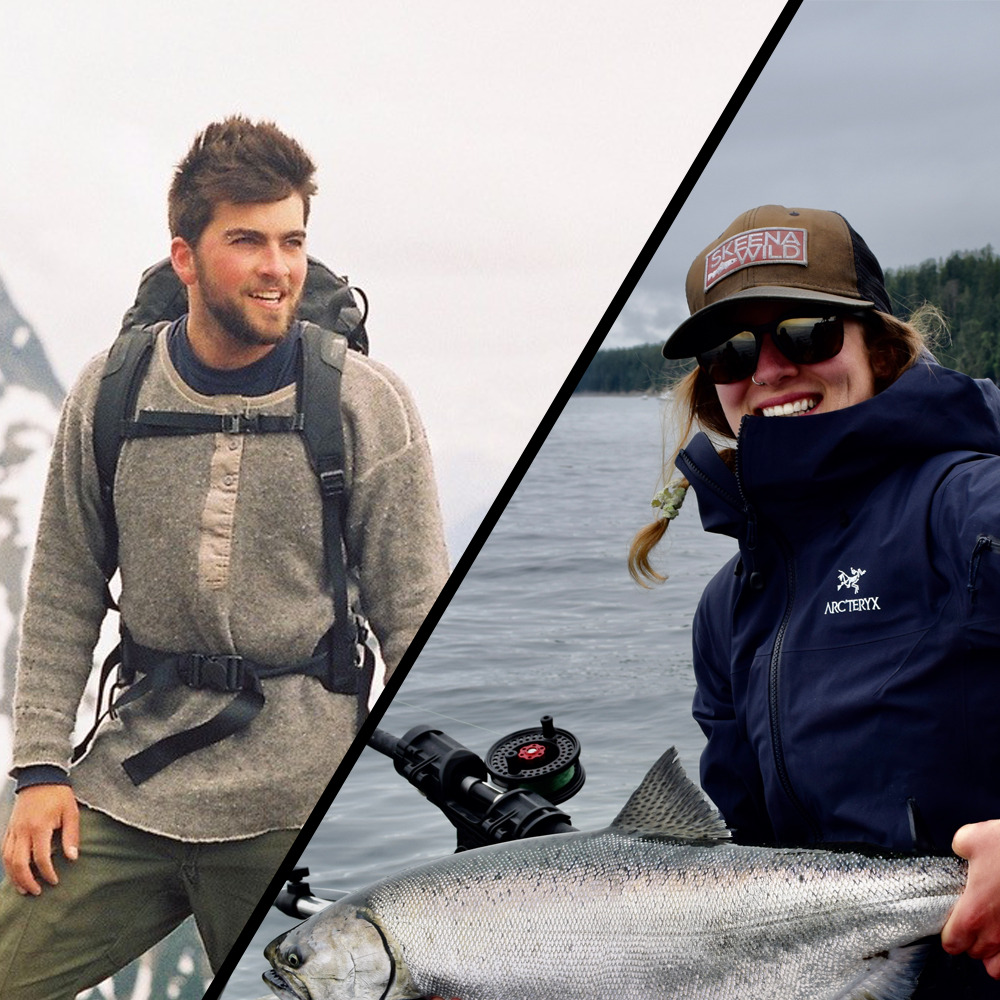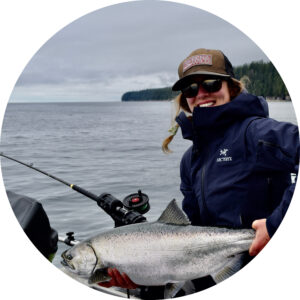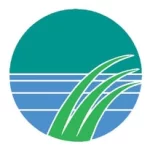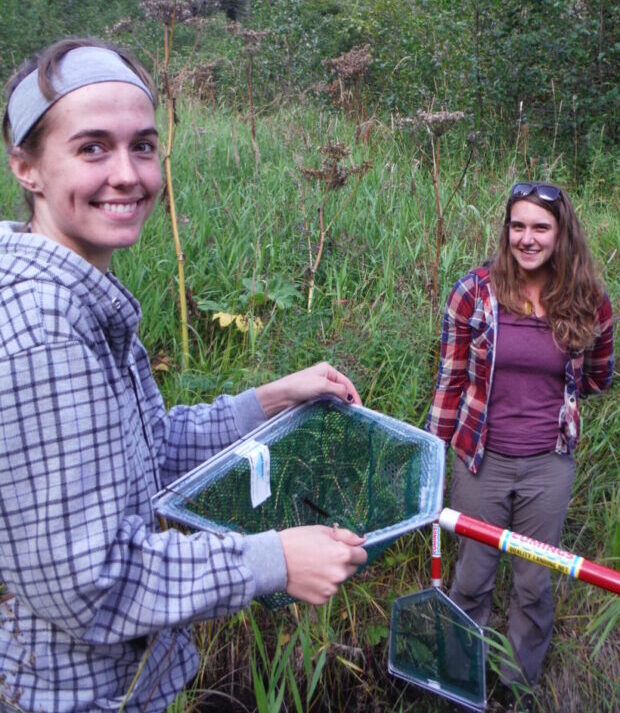
The Aleza Lake Research Forest Society working on a headwater-stream monitoring program that harnessed local volunteer efforts and citizen science.
HCTF’s Public Conservation Assistance Fund (PCAF) will be providing grants to 11 different organizations working to complete volunteer-based conservation projects in BC. The Foundation approved over $115,000 in PCAF grants this year for projects ranging from wetland restoration to enhancing fisher nesting habitat. A full list of this year’s grant recipients is below.
You can find out more about HCTF’s PCAF program here.
Western Painted Turtle Research, Protection, Enhancement Project
The Turtle Project Subcommittee of GTLASS is embarking on a 3 year project to protect and enhance the sustainability of the Western Painted Turtle (Inter-mountain population) which is designated as a Species of Concern. The main threat is urbanization in the Twin Lakes area, exacerbated by climate change and increased forestry activity.The goals of this project are to monitor the activities of the turtle population to collect accurate data on numbers of road crossings, mortality rates, and nesting sites; to put in place mitigation measures such as traffic calming measures, fencing, and enhancing or creating new, safer nesting areas.
S,DÁYES Flycatcher Forest Restoration Project
In September 2020, Raincoast Conservation Foundation (“Raincoast”) and the Pender Islands Conservancy Association (“the Conservancy”) joined forces to launch a fundraising campaign towards the purchase and protection of a 13 acre property on North Pender Island. The name for the forest (S,DÁYES Flycatcher Forest,) was chosen to honor the cultural history of North Pender Island and to highlight the vital habitat being protected for the many species found here, namely olive-sided flycatchers. This land acquisition is the first in a larger effort to maintain contiguous forests and habitats across Pender Islands and funds will support the work of developing a management and restoration plan, prioritizing ecological integrity and resilience.
Cedars for the Next Century, Phase 2
The 28-hectare Chrystal Creek watershed forms the heart of the Galiano Conservancy Association’s (GCA) 76 hectare Millard Learning Centre (MLC), which lies within the critically imperiled Coastal Douglas-fir (CDF) biogeoclimatic zone. The overarching goal of this project is to restore and enhance natural infrastructure across the watershed, improving the landscape’s ability to absorb freshwater and sequester carbon through native reforestation and wetland creation. Central to this goal is the establishment of diverse native vegetation within a successional framework that will result in the restoration of climate-resilient western red cedar forest in the long term.
Snk’mip Marsh Sanctuary Wetland and Riparian Restoration Project
This project will support volunteer activities linked to our restoration work at the Snk’mip Marsh Sanctuary. Volunteers and community ambassadors are crucial to building support for conservation, and play a hands-on role in restoring and expanding amphibian, reptile, bird and other wildlife habitat. Project activities will support volunteer coordination, biological oversight, volunteers participating in weed-pulls, planting bees, and the installation and monitoring of bird nesting boxes.
Pacific Gardens Reclamation Project
This project focuses on the preservation and restoration of Pacific Chorus Frog habitat near the Chase River. This project will be carried out in partnership with the Nanaimo & Area Land Trust (NALT) and volunteers from both NALT and the residents of Pacific Gardens Co-housing.
Fish Habitat & Riparian Restoration Stewardship Workshops
The BC Wildlife Federation’s Fish Habitat Restoration and Education Program is partnering with two community stewardship groups to host educational workshops that will increase community knowledge of freshwater fish habitat, riparian restoration, and best practices for future conservation initiatives. This project will substantially improve and expand wetland and riparian habitat and create a place for people to interact with nature and learn more about wetlands and their restoration.
Lloyd Wetland Stewardship
This project involes the restoration of a wetland in North Vancouver that provides important ecosystem services for a variety of species in the marsh as well as an adjacent creek. This uniquely urban wetland provides vital habitat for a variety of birds, cutthroat trout and other salmonids.
Tracking Bird Movement using Motus – TLBO (2021 Pilot: Saw-whet Owls)
During the late autumn of 2021 the Tatlayoko Lake Bird Observatory (TLBO) will deploy Motus radio tracking tags on Northern Saw-whet Owls that are caught as part of the TLBO’s annual owl banding program. Note this project is part of a collaboration with shared methodology and goals, the content of this application is largely consistent with the Rocky point Bird Observatory PCAF project.
Vancouver Bats Project
Federally endangered and provincially red-listed, the Little Brown Myotis (Myotis lucifugus) faces many threats including habitat loss and degradation, predators, and human disturbance. While focusing on this charismatic species, we will also conduct surveys for bat species with known overlapping range in the Vancouver area, including the provincially red-listed Keen’s Myotis (Myotis keenii) and the provincially blue-listed Townsend’s Big-eared Bat (Corynorhinus Townsendii).
Grand Forks Grasslands Livestock Exclusion
In 2020, SILT purchased 144 hectares of grassland habitat just east of the City of Grand Forks, BC. SILT’s goals for its Grand Forks Grasslands property are: a) to protect and maintain habitat for bighorn sheep, deer, and several species at risk, b) to reduce and restore habitat damage caused by motor vehicle trespass and cattle grazing, and c) to increase public awareness and care of the property.
Tracking Bird Movement Using the Motus Wildlife Tracking System (2021 Pilot: Northern Saw-whet Owls)
During autumn 2021, Rocky Point Bird Observatory (RPBO) will deploy Motus radio tracking tags on Northern Saw-whet Owls as part of RPBO’s annual owl banding program. Note this project is part of a collaboration with shared methodology and goals, the content of this application is largely consistent with the Tatlayoko Lake Bird Observatory PCAF project.
Mount Trematon Riparian Biodiversity Restoration Project
The Mt Trematon Riparian Biodiversity Restoration Project will allow for natural and assisted regeneration of plant and animal communities along Trematon Creek, Lasqueti Island. The Mt Trematon Nature Reserve is 140 acres (56.7ha) of red-listed Coastal Douglas Fir Forest (CDF) owned by Islands Trust Conservancy (ITC) and includes 7 different CDF ecosystems. With PCAF support, our goal is to protect and restore the riparian zone on Mt Trematon Nature Reserve by increasing biodiversity, habitat, and resilience in this threatened forest ecosystem.
NatureKids BC: Communities in Conservation
NatureKids BC (formerly the Young Naturalists’ Club of BC Society) is a registered grassroots charity that helps children get outdoors to explore, play, learn about and take action for nature through an award-winning network of volunteer-led family nature clubs that extends across British Columbia. Our Community Nature Clubs host youth members, ages 5-12, and their families, to learn about and step up for nature. As members of a local volunteer-led nature club, they participate in Explorer Day field trips, stewardship projects, and citizen science activities with the assistance of volunteer nature mentors (local biologists, environmental and educational specialists, natural history experts, and outdoor enthusiasts) who share their passion and expertise about wildlife species and their habitat.
Blue Heron Habitat Enhancement and Sensitive Areas Signage
This project will enhance roosting habitat for Great Blue Heron (Ardea herodias) by installing perches and sensitive area signage to deter disturbance of nesting and feeding waterfowl by motorized vessels at Hatzic Lake near Mission, BC. Restoration of disturbed riparian areas where signage is to be installed through invasive Flowering Rush (Botumus umbellatus) removal and planting of native shrubs. Visible roosting structures and educational signage will bring awareness to the issue of motorized boats speeding through habitat home to species at risk. This will benefit multiple species of birds as Hatzic Lake is home to a diverse bird population, well known among birdwatchers and bird surveyors.
Kitimat Rod & Gun Association Fisher Nesting Enhancement Project
GRANT RECIPIENT: Kitimat Rod & Gun Association
This project will construct, install, and monitor fisher nesting boxes to provide nesting and rearing sites that have been degraded due to the loss of old-growth habitat. For fisher nesting habitat to start to occur naturally requires trees in the 100 year age class, and has been a key factor in fisher population declines and limiting population growth. Studies have been positive confirming that the installation of nesting boxes are successfully used by female fishers to give birth and rear young.
